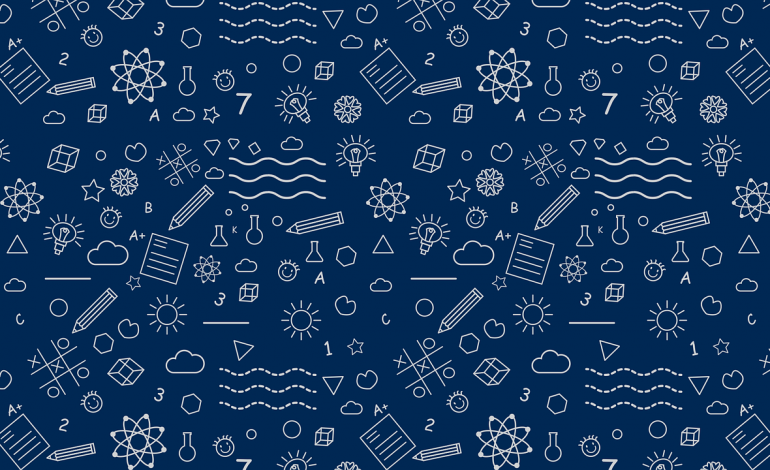Science is a tricky subject. As it involves a lot of facts and data (like dates, numbers and names) that need to be memorized. Yes, you can use ready-made mnemonics or memory techniques, but the best way to remember science facts is to understand them.
Why? Because when you understand what you are reading, your brain will automatically try to make connections to other things you know. This will help you remember more easily!
Here’s how you can study science from textbooks faster:
#1 Read. Understand and Try to apply scientific theories
The first step in understanding biology, physics or chemistry is to read the textbook chapter or notes carefully. Then try to explain or apply the scientific theories in your own words. In this way, you can make sure that you have understood what was written in the textbook properly before proceeding with the next step.
Studying science is a time-consuming process. The subject of science is much broader than learning about the scientific names of animals, plants and other natural objects. Science is a vast subject that requires extensive reading and understanding. To make the most out of your science studies, it’s important to organize your study time so that you can get through the material without getting bogged down in details.
The very first step before studying anything is to read it twice or thrice. It helps in building up a foundation for studying the given topic. After reading, try to understand what you have read and try to apply those theories to real life examples because applying scientific theories to real-life examples will help you remember what you have studied for a longer period of time.

When studying any science, you have to read the textbook. To get the most out of it, read paragraphs that are of interest to you and make notes. You don’t have to read everything but try to understand the writing. If necessary, take a break for about 10 minutes after reading about 5 pages. In this way, your brain can be filled with new information without being stressed.
It is important to take your own time reading and understanding what each word means. While reading, try to imagine what the section is trying to explain by creating a mental picture of the content and how it works. This will not only help you understand what you are reading but also help you retain the information in your mind for a long time.
After you’ve gained some knowledge from the textbook, try to apply scientific theories in your daily life. For example, if you are learning about physics, then try to apply what you have learnt in your daily life by making predictions and observations.
Read in advance. Science subjects are usually learned in class and most teachers expect their students to understand the topic before they go to class. To make sure that you can keep up with the lesson during class, it is best to read your textbook before the day of your class. You may also want to take notes so you remember the important things that you need to know about a certain topic.
#2 Try the sample science questions
After understanding the concepts and theories, proceed to do some sample science questions provided at the end of each chapter or section. Through this, you can find out if there are any areas in which you are weak or which are difficult for you. You should make sure that you understand how to solve these sample science questions on your own before looking at the answers provided.
The most interesting way in which you can study science fast is by trying sample test questions. Make sure that they’re not too difficult or easy; they should be at an average level of difficulty. If they are too hard, then try another test because practicing hard questions won’t help much since you’ll waste time. And if they are too easy then there’s no point trying them at all because there’s nothing new being learnt.

It is easy to assume that you have understood everything from your textbook once you have finished reading it. However, this should not be the case. Once you have read all the sections, try out some sample questions. You can get these questions from either previous exams or sample question papers online. This will help you determine whether or not you have fully understood what you read in each chapter. If there are some questions that you do not know how to answer, then it means that there are some areas that need further research and revision.
#3 Speak and write it in your own words
The last method is simple yet powerful: speak and write it.

Try speaking or writing what you have studied in your own words, it will help in developing better understanding of the subject matter. Finally, to revise whatever you have learned so far, try answering some questions from previous year papers or sample papers in order to check your level of preparation and knowledge on a particular topic.
Conclusion
As a student, you can study science fast and effectively by spending time reading, understanding and applying scientific theories to real life scenarios.
The first step in studying science is to read through your science textbooks. Read every chapter from the section you want to study.
Then try the sample science questions. When I’m studying, I read all the notes that I have and then I try to apply them on my own words. The more you practice this, the better you are at writing scientific essays.
When you’re trying to write an essay, don’t start with a blank page. Start with a general outline of what you want to write about, then fill in the gaps or details as required by your teacher.
For example: if you’re writing an essay about photosynthesis, you would start with a general outline of what photosynthesis is, how it happens and how it affects the environment around us. Then you would go into detail about each part of photosynthesis.
Then once you’ve written everything down in point form on your paper, go back through each point again and fill in any details or explanations that might not be clear enough for someone else assessing your work.


